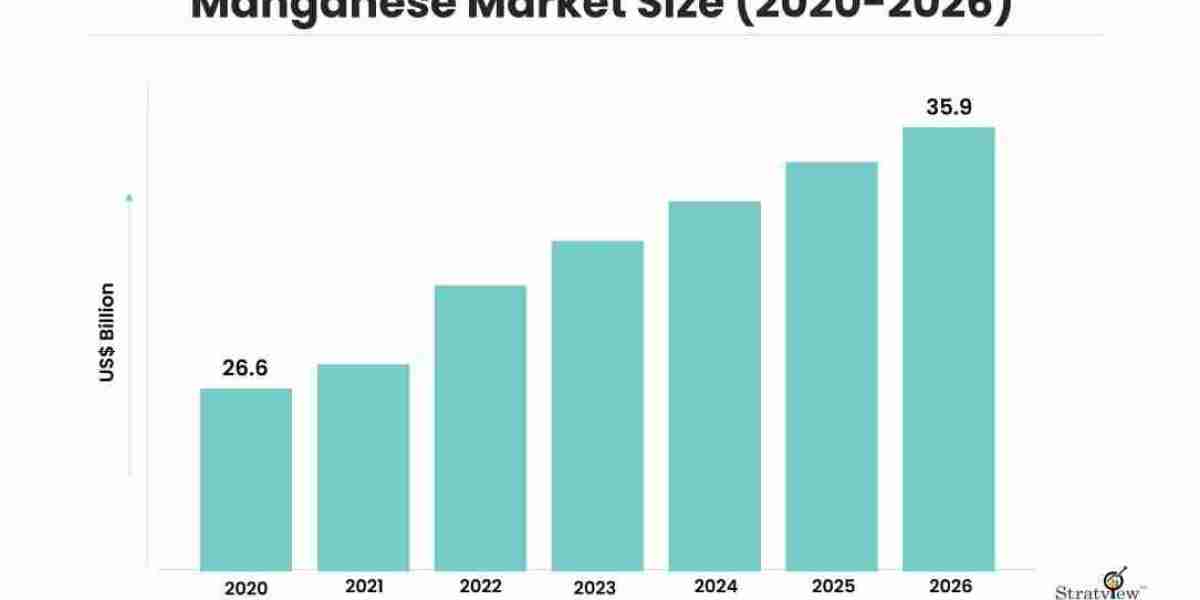Manganese is a critical metal with a wide range of applications. It is used in steelmaking, batteries, fertilizers, and other industrial products. The global demand for manganese is growing, and this is driving the growth of the manganese recycling industry. The manganese market is estimated to grow from USD 26.6 billion in 2020 and is likely to grow at a CAGR of 5.2% during 2021-2026 to reach USD 35.9 billion by 2026.
The growth of the manganese recycling industry is being driven by a number of factors, including:
- The increasing demand for manganese: The demand for manganese is growing, particularly in the renewable energy sector. This is because manganese is a key component in the production of wind turbines, solar panels, and batteries.
- The increasing scarcity of manganese: The world's known reserves of manganese are declining. This is making it more difficult and expensive to extract manganese from the earth.
- The environmental benefits of recycling: Recycling manganese helps to reduce the need for mining and processing of new manganese ore. This can help to conserve natural resources and reduce pollution.
There are a number of different ways to recycle manganese. Some common methods include:
- Mechanical recycling: This involves crushing and sorting manganese-containing materials, such as spent batteries and steel scrap. The recovered manganese can then be used to produce new products.
- Hydrometallurgical recycling: This involves dissolving manganese-containing materials in acid or other solvents. The manganese can then be recovered from the solution.
- Pyrometallurgical recycling: This involves heating manganese-containing materials to high temperatures. The manganese can then be recovered from the molten metal.
The manganese recycling industry is still relatively new, but it is growing rapidly. As the demand for manganese continues to grow, the manganese recycling industry is expected to continue to grow as well.
Here are some of the benefits of manganese recycling:
- It conserves natural resources: Recycling manganese helps to reduce the need to mine new manganese ore. This can help to conserve natural resources and protect the environment.
- It reduces pollution: Mining manganese can be a polluting process. Recycling manganese helps to reduce the amount of pollution associated with manganese production.
- It saves energy: Recycling manganese requires less energy than producing manganese from new ore. This can help to reduce greenhouse gas emissions.
- It creates jobs: The manganese recycling industry creates jobs in collection, sorting, processing, and manufacturing. This can help to boost the economy and create opportunities for workers.
The manganese recycling industry is a growing and important part of the global economy. It helps to conserve natural resources, reduce pollution, and save energy. As the demand for manganese continues to grow, the manganese recycling industry is expected to continue to grow as well.
Here are some of the challenges facing the manganese recycling industry:
- The high cost of recycling manganese: Recycling manganese can be more expensive than producing manganese from new ore. This is because the process of recycling manganese requires specialized equipment and facilities.
- The lack of awareness about manganese recycling: Many people are not aware that manganese can be recycled. This can make it difficult to find manganese to recycle.
- The lack of government support: Some governments do not provide financial support for manganese recycling. This can make it difficult for manganese recycling businesses to operate.
Despite these challenges, the manganese recycling industry is a growing and important part of the global economy. As the demand for manganese continues to grow, the manganese recycling industry is expected to continue to grow as well.









